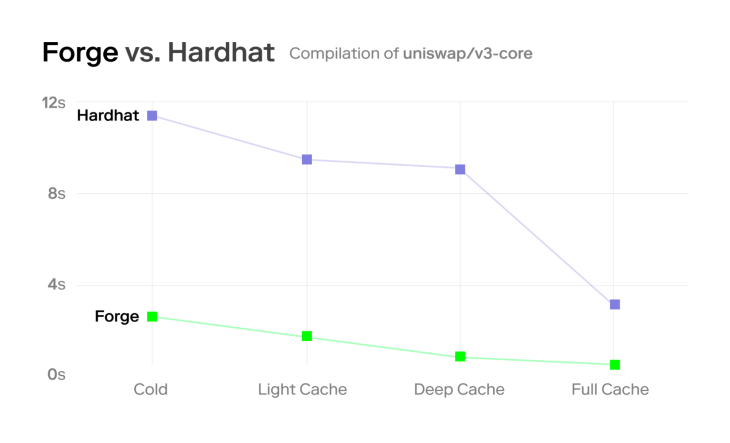I've been using smart contract frameworks since 2020, and let me tell you
- the landscape has been brutal.
Two frameworks are still alive, and everything else is a graveyard. If you're still using Truffle or Brownie, you're living in the past and setting yourself up for pain.
What's Actually Still Alive
Hardhat
- Still the go-to for Java
Script developers. It just works, has a massive plugin ecosystem, and won't randomly break your builds. The Nomic Foundation backs it so it's not going anywhere.
Foundry
- The new hotness.
Way faster because it's written in Rust, but comes with a steep learning curve. De
Fi protocols love it because fuzzing actually catches bugs that would cost millions in production.
Truffle
- ConsenSys killed it in September 2023. If you're still using it, you're not getting security updates. Time to migrate.
Brownie
- The Python community basically gave up on it. Everyone moved to Ape Framework, but honestly, just use Foundry or Hardhat instead.
Performance: Why Foundry Makes Developers Happy
Look, I've spent way too much time waiting for Hardhat tests to finish.
When I first tried Foundry, the tests ran so much faster I thought something broke. You know when you're used to tests taking forever and suddenly they finish in seconds?

Here's what you'll actually notice:
- Small projects:
Foundry finishes before Hardhat even starts
- Medium projects: Foundry is way faster, Hardhat takes painfully long
- Large codebases:
Foundry is still fast, Hardhat makes you question your life choices
War story: Our CI pipeline was taking forever because of slow Hardhat tests.
Switched to Foundry and the speedup was insane
- developers actually started running tests locally again instead of just pushing and hoping.
The speed comes from Rust being faster than Java
Script and native Solidity testing instead of running through a JS wrapper. When you're iterating on tests all day, this isn't just a nice-to-have
- it's a sanity saver.
What Developers Are Actually Using
Hardhat still dominates with ~362k weekly downloads as of August 2025. Almost every Ethereum tutorial uses it, enterprise teams love the stability, and the plugin ecosystem is insane. The Nomic Foundation backs it, so it's not going anywhere.
Foundry is the hot new thing. Every DeFi protocol I know has at least considered switching. The early adopters are mostly performance-obsessed teams who got tired of slow test suites. It's growing fast but still feels like a power user tool.
Truffle is a zombie
- still getting downloads from people following old tutorials, but anyone using it for new projects is making a mistake.
Brownie usage has basically flatlined. The Python community mostly moved on.
Just Use Foundry if You Want Speed, Hardhat if You Want Plugins
Here's my honest take after using both extensively:
**
Choose Hardhat if:**
- Your team already knows JavaScript/TypeScript well
- You need specific plugins (there's probably one for whatever weird thing you're doing)
- You're building full-stack apps and want everything in the same language
- You want stability over bleeding-edge performance
**
Choose Foundry if:**
- Test speed matters to you (it should)
- You like writing tests in Solidity instead of JavaScript
- You're building performance-critical DeFi protocols
- You don't mind learning Rust tooling
Migration Reality Check: If you're on Truffle or Brownie, you HAVE to migrate.
Consen
Sys has guides, but they're basically "figure it out yourself" at this point.
Actual migration horror story: Spent weeks migrating a De
Fi project from Truffle to Hardhat. Everything seemed fine until we deployed to testnet and discovered our gas estimates were completely fucked because Hardhat's simulation was subtly different. Had to rewrite deployment scripts and re-audit the gas optimization. Always test everything on testnet first
- the simulators aren't identical.
The framework choice will impact your development speed more than you realize. Choose wisely, because switching later is a pain in the ass.
The Bottom Line
Both frameworks are actively maintained and you can't really go wrong with either. The real losers are developers still stuck on dead frameworks burning time on tools that will never get better.

